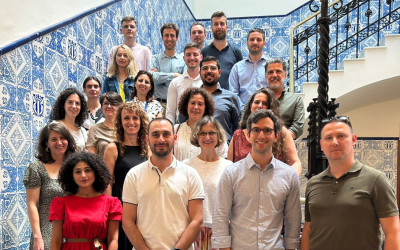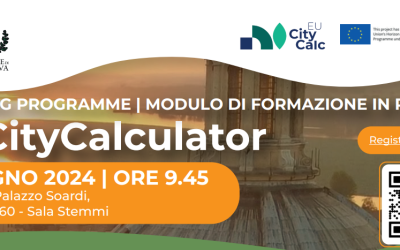REAN joined the NECP dialogue roundtable to make the cities’ voices heard by the national government
The Croatian NECP (2021-2030) outlines targets for greenhouse gas reduction, renewable energy promotion, energy efficiency, and power system interconnection. Cities are crucial in achieving these goals through measures like:
1. Spatial Planning for Renewable Energy: Analyzing and setting guidelines for planning at all levels.
2. Integrated and Intelligent Transport: Creating and implementing sustainable urban mobility plans.
3. Urban Sustainability: Encouraging sustainable principles in urban projects.
The importance of having multi-level dialogues
On April 23, 2024, in Zagreb, Croatia, the EUCityCalc partner Regional Energy Agency North (REAN) participated in a roundtable The Role and Responsibilities of Local and Regional Government Units – Climate and Energy on behalf of the pilot cities Koprivnica, Varazdin, Virovitica.
This event, organized under the EU-LIFE project NECPlatform, was hosted by the Ministry of Economy and Sustainable Development, the Ministry of Finance, the Ministry of Regional Development and EU Funds, and the North-West Croatia Regional Energy Agency (REGEA).
Effective communication between government levels can tailor measures to local needs, although additional support in capacity building is necessary for implementation. The event was a concrete opportunity to strengthen multi-level dialogue involving various stakeholders to discuss energy and climate policies comprehensively.
Key Outcomes and Recommendations
The event emphasised collaboration to address climate change and EU goals, gathering inputs to update the NECP. Key recommendations include:
1. Extend the public consultation period for adequate feedback and comments.
2. Implement more ambitious measures in the transportation sector.
3. Reinstate taxes on SOx, NOx, and CO2 emissions for industries to make coal less competitive.
4. Ban Euro 4 and older vehicles promptly.
5. Establish low-emission zones.
6. Prioritise a rapid transition to renewable energy sources, promoting their decentraliation.
7. Decrease the use of fossil fuels in the energy mix over a defined period, to phase them out entirely.
8. Implement ambitious socio-economic policies to significantly reduce greenhouse gas emissions.
9. Address Croatia’s susceptibility to climate change impacts in the Mediterranean Basin by implementing proactive environmental mitigation measures.
This roundtable underscored the importance of local and regional governments in climate initiatives, promoting collaboration to meet Croatia’s 2030 objectives.
To delve deeper into the report and the complete list of recommendations, please click here.
Explore our toolkit for insights on how cities can bolster their climate action here.











